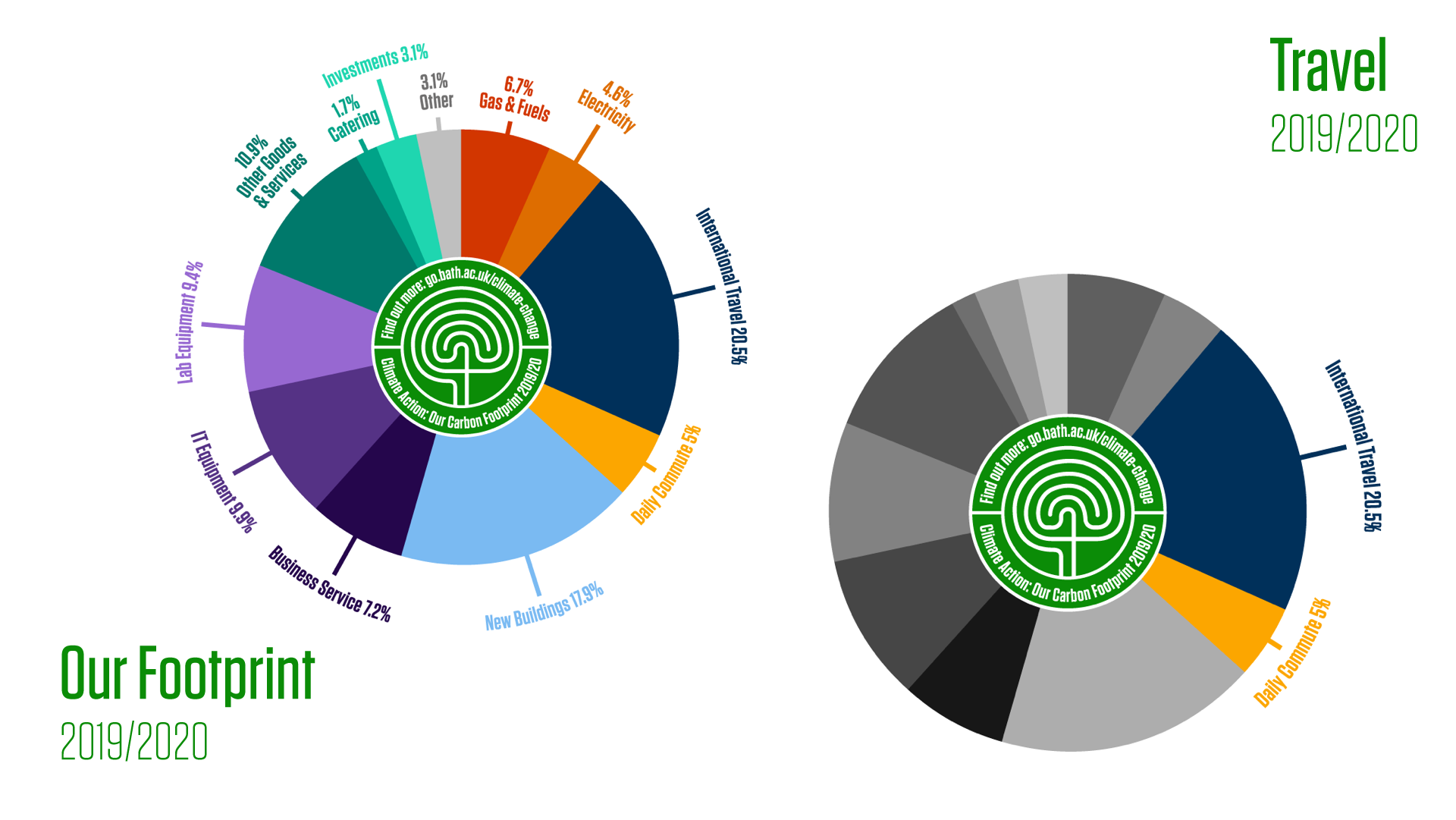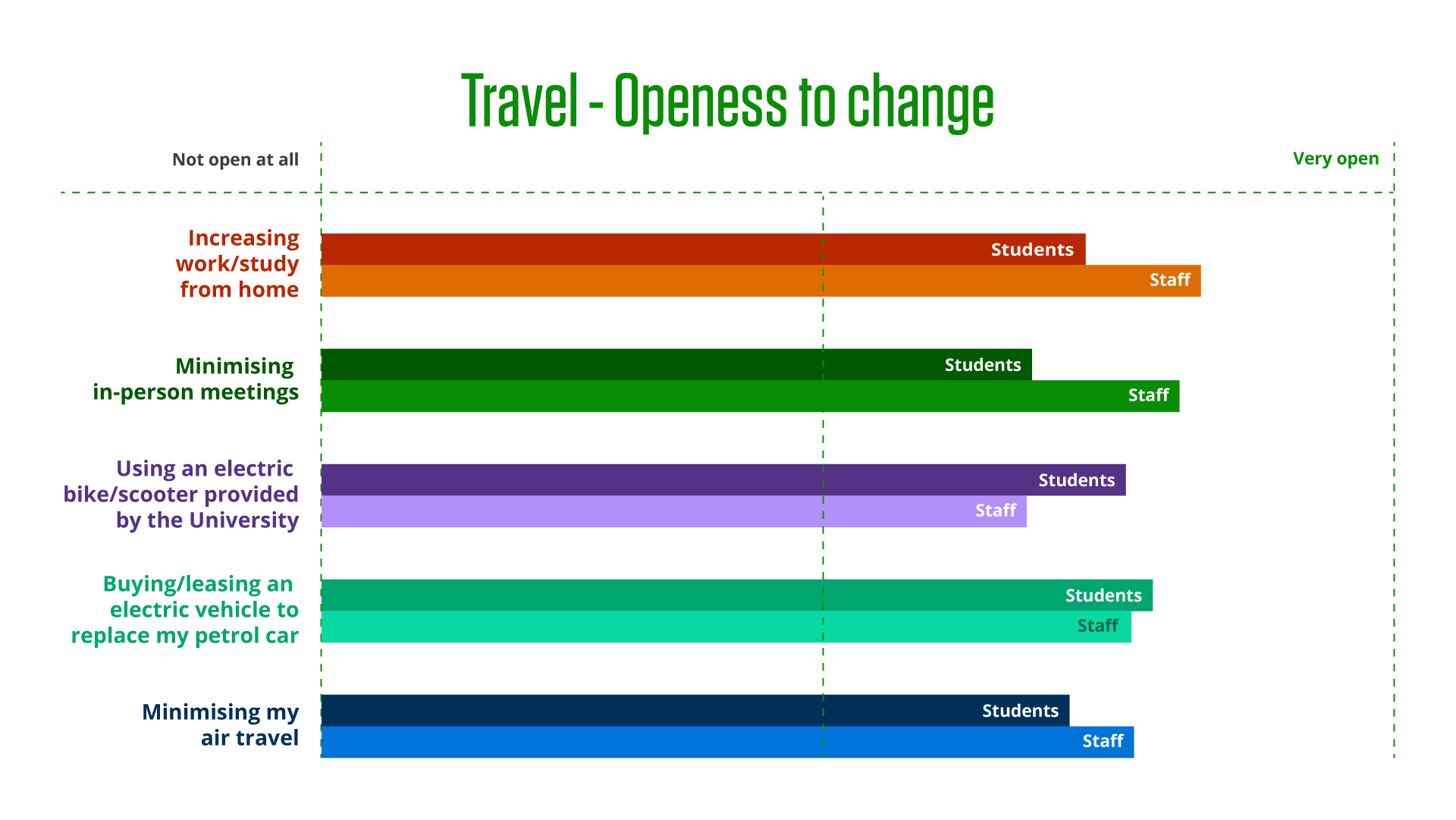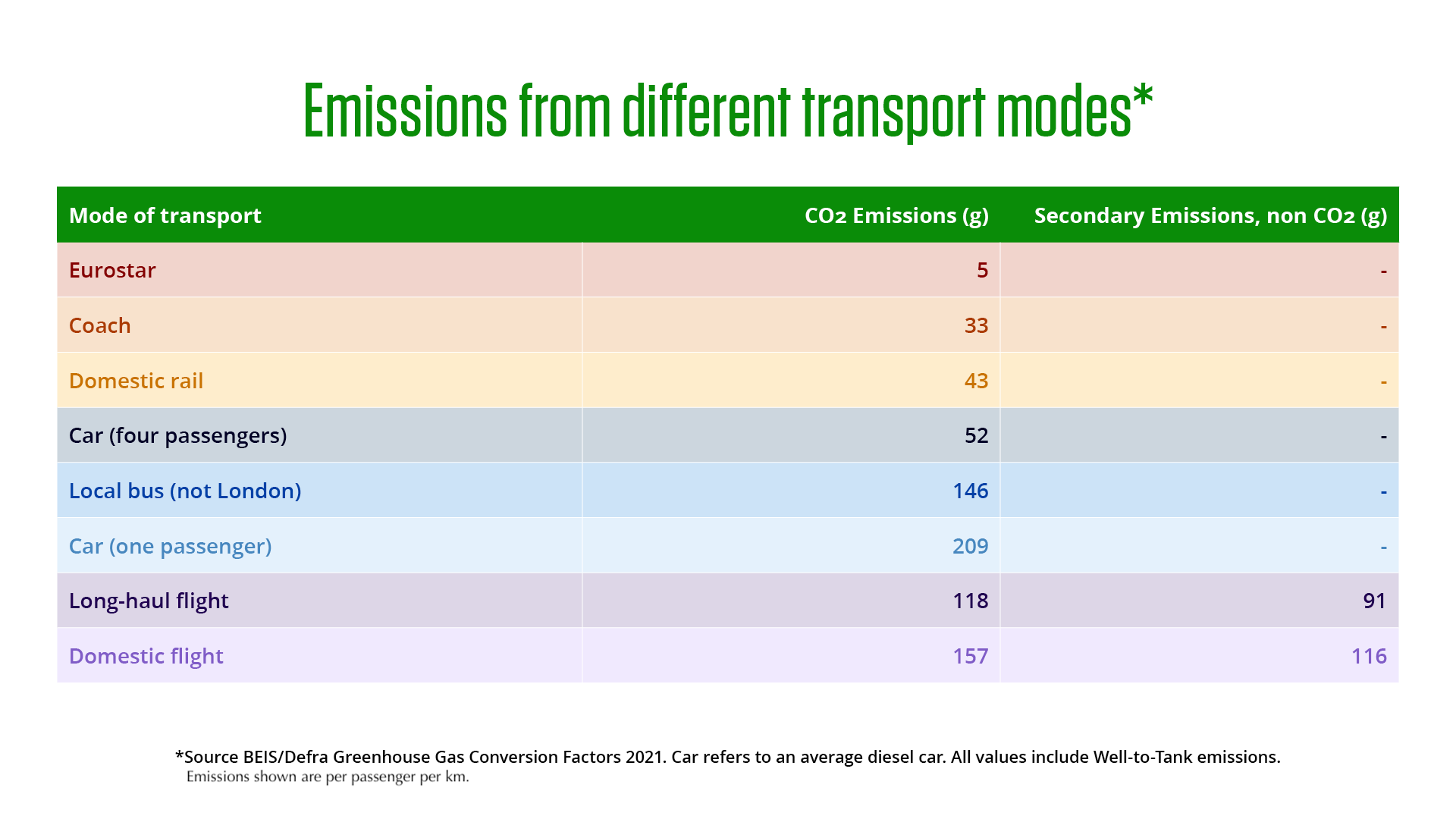Changing travel habits is one of the biggest impacts students and staff can do to reduce their carbon footprint. Results from the 2021 Climate Action Survey show that our community is very open to significant change to reduce travel.

Staff and students use different modes of transport to commute to and from the University, but one thing is similar – the majority are very open to changing those travel habits to lower their carbon footprint.
Results from the 2021 Climate Action Survey show that staff’s number one mode of transport for their commute is by car, whereas students mostly take the bus. Take a look at the top three ways staff and students commute to the University across a week:
Staff |
Students |
| 1. Car (alone) | 1. Bus |
| 2. Bus | 2. Walking/wheelchair/mobility scooter |
| 3. Bicycle (inc. electric) | 3. Walking or cycling (for at least 10mins) + bus |
How do we get our community to cycle more on their commute?
While survey results show that University staff are more likely to cycle on their commute, few students currently do so. Those familiar with the campus might not be too surprised – the hill makes it much more daunting – but not impossible!
While it is not possible to completely ‘flatten the hill’, there is potential to partly do this, and also to create a better cycling culture across the University. The wider adoption of electric bikes (e-bikes) and electric scooters (e-scooters) would make a real impact on lowering the carbon impact of commuting to the University. While this micro-mobility transportation cannot always be used for very long commutes, for shorter distances, they are a real asset.
The University currently offers staff the opportunity to hire an e-bike for free for up to two weeks. If we are to reach our targets for tackling climate change, we should look to consider schemes for use campus-wide.
There are a number of options available when commuting to the University and we offer bicycle storage and showers for those opting for low-carbon commutes via bicycle. University staff can also take advantage of the Cycle to Work schemes and loans available.
The University aims to make sustainable and active modes of transport the easiest option when getting to and around campus. Our survey findings show that most people within our community understand that climate change is an urgent issue and are willing to make changes to their own lifestyles, including travel habits, to help tackle it. While it’s very encouraging that there’s support from the community for making these changes, we need to consider what more we can do to help achieve that.
Rethinking business travel plans
Travel, particularly international travel, is an important tool for the University: it enables us to carry out research and facilitates knowledge-sharing with our partners around the globe. Unfortunately, most forms of travel involve releasing carbon emissions, with flights being one of the most carbon-intensive. Carbon emissions from business and student travel are a large part of the University’s carbon footprint.

Short-haul flights made by University staff are six times more carbon-intensive per kilometre travelled than an alternative domestic train journey. Long-haul flights create 67% of our travel emissions. The University’s revised Travel and Expenses Policy now states that alternatives should be sought to short-haul flights. The University’s business travel emissions were reduced by more than 95% due to COVID-19 and although this is expected to increase in 2022, emissions should be at a lower level than before, partly thanks to the carbon reduction objectives of the University’s revised policy.
There is a growing global movement calling for academics to address emissions from air travel. These includes a number of online petitions (e.g. on change.org ) and pledges (e.g. the Zero Emission University). Like us, some academic institutions are developing travel policies which prioritise ground travel as a response to the climate emergency, whilst many individual academics have responded by making a principled decision to minimise or cease flying; a position also held by some of our staff members. Professor Toby Jenkins, and Professor Petra Cameron recently wrote of the benefits of train travel across Europe, whilst Professor Lorraine Whitmarsh MBE recently spoke with us about reducing flights for climate change.
Disrupting the status quo
After setting ambitious climate change targets, the disruption caused by the pandemic is an opportunity to reduce the University’s carbon emissions via business travel for good. Our survey results show that staff are open to both working more from home and conducting meetings online, rather than in-person.
Although social interaction can be difficult to replicate online, digital platforms are continually improving and as online events are now seen as the norm, our global partners will likely continue to experiment with new ideas to ensure greater inclusion.
To stay up-to-date on the latest developments from the Climate Action team, visit our climate change hub.
Notes about the survey
-
This survey was conducted in November 2021.
-
This survey was completed by 3985 respondents, representing 39% of University staff and 11% of students.
-
This survey was commissioned by the Climate Action team with methodology devised and results analysed by Dr Paul Haggar, Prof Lorraine Whitmarsh, Kaloyan Mitev and Hannah Lester.
-
The collated survey data can be accessed by members of the University of Bath community here.
-
If you have any questions about the nature of this survey, please contact climateaction@bath.ac.uk
Respond
